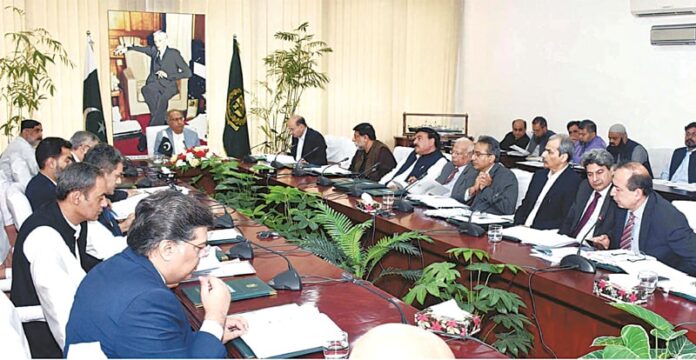ISLAMABAD: As per its commitment with the International Monetary Fund (IMF), the Economic Coordination Committee (ECC) of the Cabinet has approved amendments in the power act, which would ultimately burden power consumers in the shape of ‘new surcharges and adjustments’.
The ECC, which met with Adviser to Prime Minister on Finance Abdul Hafeez Shaikh in the chair on Monday, approved amendments to the Regulation of Generation, Transmission and Distribution of Electric Power Act, 1997, to address issues pertaining to the ballooning circular debt.
The amendments in the existing laws were being introduced as per the commitment made by Dr Abdul Hafeez Shaikh and State Bank of Pakistan Governor Dr Reza Baqir during the recently concluded first review of the IMF programme. The government has committed to a revised structural benchmark to allow a fresh power tariff increase so that the cost of capacity payments could be covered within the current month.
Pakistan, under the IMF programme, had constituted a committee to eliminate delays in tariff adjustments and to reintroduce the government’s powers to impose tariff surcharges through amendments to the National Electric Power Regulatory Authority (NEPRA) Act so that the regulator could determine and automatically notify quarterly tariffs under fresh benchmarks.
During the ECC meeting on Monday, a set of amendments, proposed by the Ministry of Energy, to the Regulation of Generation, Transmission and Distribution of Electronic Power Act 1997, were approved for submission before the federal cabinet.
The ECC was informed that the proposed amendments were aimed at bringing more clarity and precision in the market operation, besides ensuring a uniform tariff, timely submission and determination of quarterly and annual tariffs.
The committee discussed the proposed draft amendments in detail and recommended their submission to the cabinet with a slight modification in the text to make it in line with the input from some ECC members.
After the ECC’s go-ahead, the proposed amendments would be taken up by the federal cabinet and later submitted to the National Assembly Secretariat for further discussion by the NA standing committee and other relevant stakeholders, including NEPRA, before being put to vote by the House.




